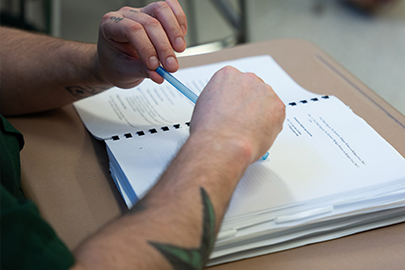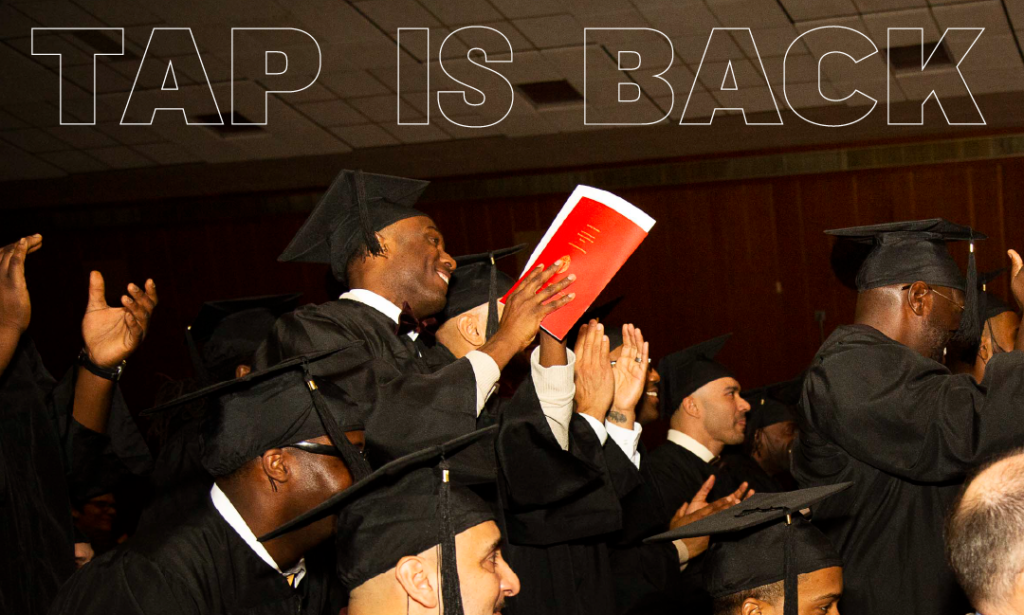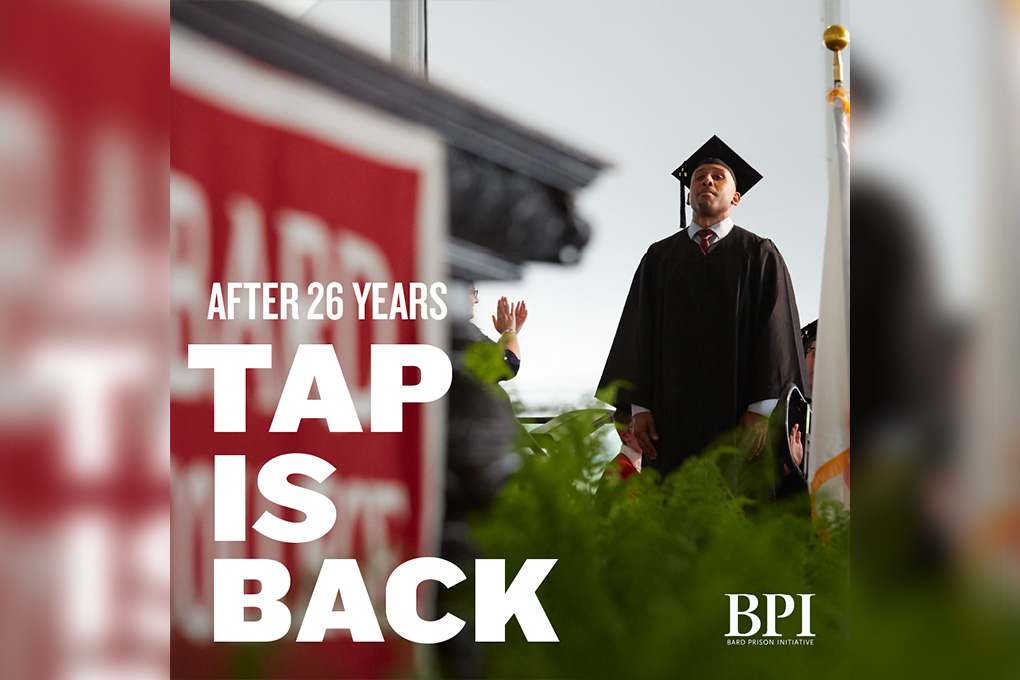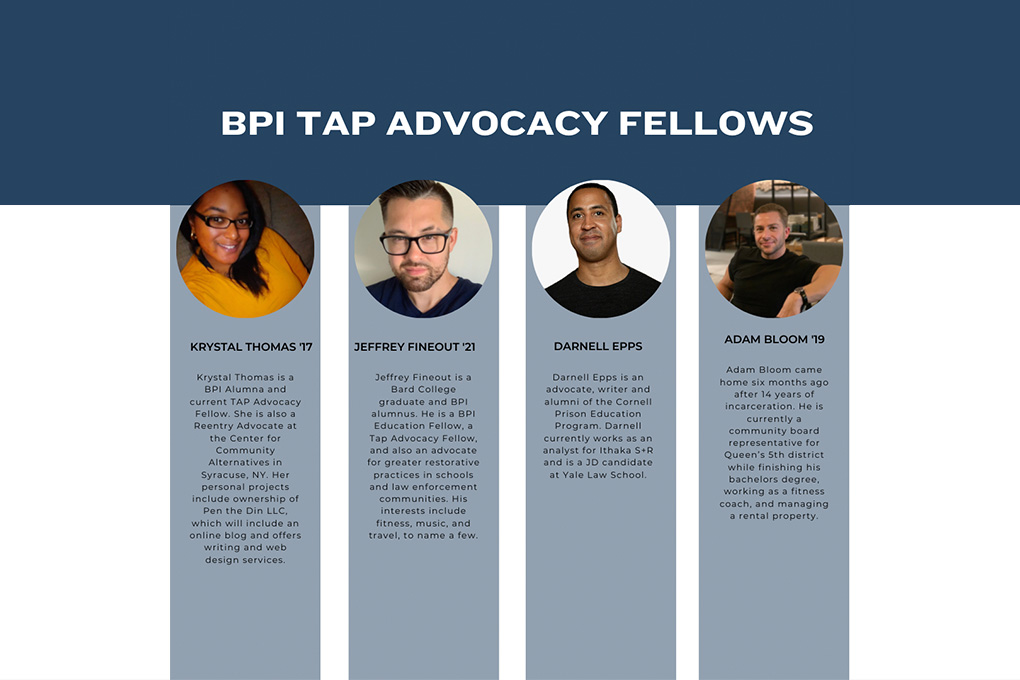September 13th marks the 25th anniversary of the Violent Crime Control and Law Enforcement Act of 1994, often referred to the 1994 Crime Bill. It was one of the most far-reaching crime bills ever passed by Congress, with widespread implications. But for the field of college-in-prison, the most impactful part of the legislation was a provision that made people in prison ineligible for Pell Grants. Between 1972 and 1994, federal and state funds supported the bulk of the estimated 772 college-in-prison programs around the nation. After the 94 Crime Bill, state lawmakers followed the federal lead and rescinded state-level tuition assistance programs such as TAP (Tuition Assistance Program) in New York State and MAP (Monetary Award Program) in Illinois ending tuition support for incarcerated students.
College in prison collapsed.
BPI was founded by Bard College undergraduates in 1999, in the wake of the decimation of college-in-prison in New York State and around the nation. At that time, only a handful of college-in-prison programs remained.
In 2003, BPI leadership authored a report “Education as Crime Prevention: The Case for Reinstating Pell Grant Eligibility for the Incarcerated.” (Karpowitz and Kenner) and pushed members of Congress to act to fix their nearsighted mistake.
Daniel Karpowitz and Max Kenner wrote,
This report illustrates the overwhelming consensus among public officials that postsecondary education is the most successful and cost-effective method of preventing crime. As proven by the government studies cited in this memo, the public-safety and economic impact of correctional education is enormous. In the past these profoundly positive effects were widespread even though such grants accounted for roughly one-half of 1% of total Pell investments.
The cost-effectiveness of this policy is manifest, and has been detailed in officially recognized cost-benefit analyses. The United States Government should resume its policy of releasing a fraction of Pell Grants to qualified incarcerated Americans. An extremely modest public investment would create a massive response from private, non-profit educational and religious organizations. Such a policy would sharply cut rates of recidivism and save the states millions of dollars.
You can read the report here.
In 2016 the US Department of Education authorized an experimental site initiative known as Second Chance Pell which returned Pell Grant eligibility to a small number of colleges and universities with college-in-prison programs. Bard College was among the 67 colleges selected along with six other Consortium partners including Goucher, Holy Cross, Bennington, Wesleyan Center for Prison Education in partnership with Middlesex Community College, the Freedom Education Project of Puget Sound (FEPPS) in partnership with Tacoma Community College, and Villanova University — representing more than 10% of all current Second Chance Pell sites.
In a rare moment of bipartisan policy support, the Department of Education has recently announced a second round of Second Chance Pell eligibility.
With the 25th anniversary of the crime bill upon us, the field of college in prison is robust and expanding with growing momentum to urge Congress to fix this historic mistake and restore Pell.
Now is the time to act.
#PellYes
The crime bill eviscerated #CollegeInPrison. In 1994, educational opportunity was standard in state and federal prisons. Within a year, it was decimated. #PellYes #RestorePell #94CrimeBill
(2)— Bard Prison Initiative (@BPIBard) September 13, 2019
For more on Pell in prison:
Education as Crime Prevention: The Case for Reinstating Pell Grant Eligibility for the Incarcerated.
August 5th 1994 GAO letter on Pell.
Click here to learn more about the recent chapter The Long History of College-in-Prison authored by Max Kenner in Education for Liberation: The Politics of Promise and Reform Inside and Beyond America’s Prisons (eds Gerard Robinson and Elizabeth English Smith)
Read how formerly incarcerated leaders helped bring back Second Chance Pell here.
The Second Chance Pell Pilot Program: A Historical Overview
Center for American Progress: Congress Should Repeal the Ban on Pell Grants
Forbes: College Behind Bars: How Educating Prisoners Pays Off
The Hill: Restore Pell Grant Eligibility to People in Prison
The New Yorker: The Power of Pell Grants for Prisoners
AEI: College in prison: What I learned this week
MIC (John King): Prisoner access to Pell Grants needs to be reinstated now. Here’s why. (Op-Ed)
The Chronicle of Higher Education: Ending Ban on Pell Grants for Prisoners Is Said to Yield ‘Cascade’ of Benefits
Vera Institute of Justice, Georgetown Center on Poverty and Inequality: Investing in Futures: Economic and Fiscal Benefits of Postsecondary Education in Prison



